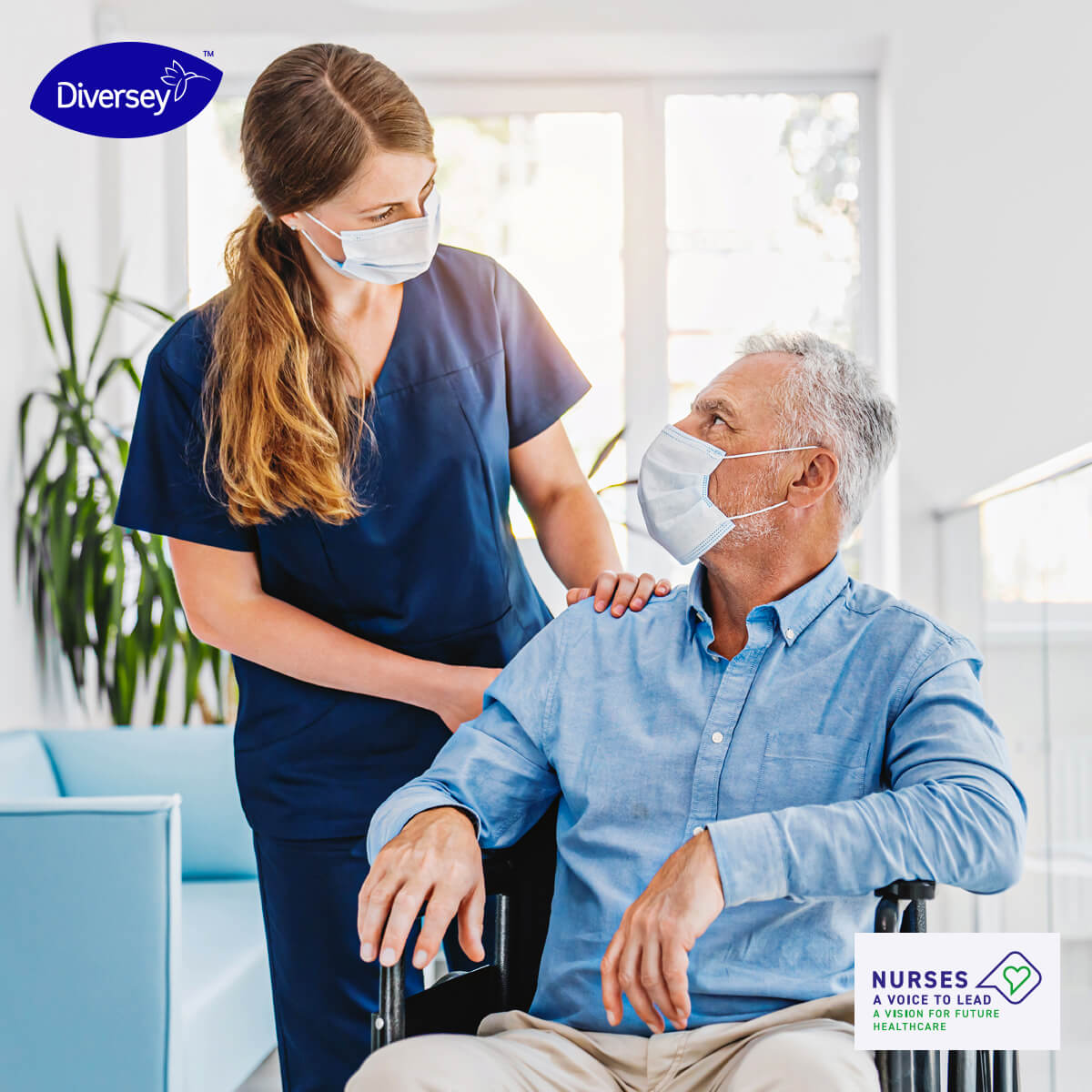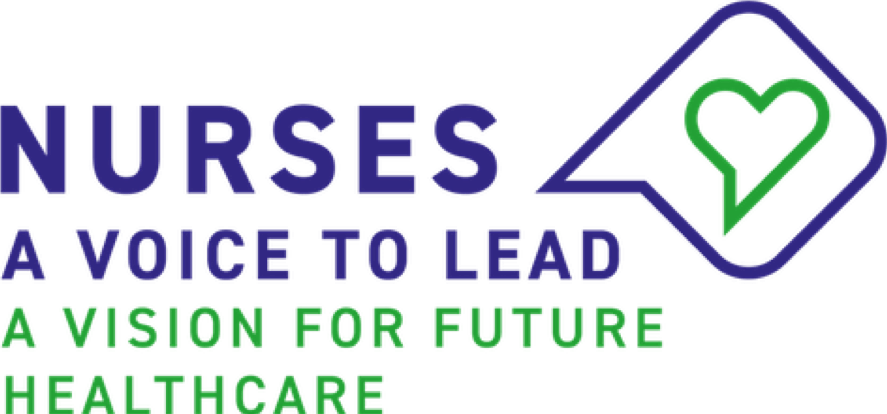The International Council of Nurses (ICN) hosts International Nurses Day each year on 12 May to mark the anniversary of Florence Nightingale's* birth while celebrating the achievements of the nursing profession.
This year's theme "Nurses: A Voice to Lead - A vision for the future of healthcare" is about the future of nursing and how the profession will transform the next stage of healthcare.
At Diversey, we are proudly supporting International Nurses Day by raising awareness on the vital role they play in healthcare. With Diversey being an active supplier in the Healthcare market, we understand the importance of their contribution in improving the quality of care for patients worldwide - across many different and challenging settings - and we thank them for all the great work they do day after day.

We Need More Hands; We Need More Nurses
We are taking this opportunity to flag some of the risks identified by ICN and WHO around the current status of the nursing profession; paying specific attention to the nurse shortage and retention, and the effects this has on hand hygiene.
The global nursing workforce is estimated at 27.8 million1, with nurses being the largest group of healthcare workers (HCWs) and the group that has the most contact with patients. We know the world was already facing a shortage of 5.9 million nurses before the COVID-19 pandemic (with 90% of these shortages concentrated in low- and lower middle-income countries). This has only gotten worse with the impact of COVID-19, and the aging of the nursing workforce. ICN estimates up to 13 million nurses could be needed to fill the global shortages and replace nurses who leave in the next few years.
This lack of nurses (in other words, lack of hands) can have very negative effects, as understaffing and too high of a workload have been proven to be inhibiting factors in good hand hygiene compliance2. Being the group in closest contact with patients, any improvement in the staffing of nurses is likely to positively affect the levels of hand hygiene compliance, therefore reducing healthcare-acquired infections (HAIs), with the potential to improve patients outcomes and save lives3.
We Need More Educated Hands
Getting the global nursing workforce to an optimal staffing level will be one big step forward helping improve adherence to ?golden hand hygiene standards?. However, that shouldn't stop there. In parallel, we should keep raising awareness of hand hygiene especially by training nurses on a regular basis, and creating a hand hygiene safety culture with the participation of both individual health care workers and senior hospital managers4.
Giving the appropriate and deserved value to hand hygiene as part of the nursing curriculum and providing them with the space (time and resources) to learn and continuously improve, should also become the norm in this profession.
By doing that, and showing the effect that good practice has on patient safety, the professions of nursing will gain both value and recognition.

We Are Here To Help
At Diversey, we believe the best way we can contribute to build better Healthcare systems and enhance the nursing profession is by keeping providing evidence based solutions that reduce infections and improve outcomes - making the nurses job a little bit easier (or a little less difficult) and even more rewarding.
Our suite of continued education and resources to address emerging needs, facilitation of evidence-based cleaning and disinfection practices, and products is not only focused at enhancing patient safety but also at driving improved productivity of staff, lowering the overall cost of care - all of that driving continuous improvement. All these improvements and cost optimizations can then be reinvested into nursing, generating a virtuous cycle that benefits both nurses and patients.

*Florence Nightingale (1820-1910), was a British nurse, social reformer and statistician best known as the founder of modern nursing.
1. State of the world's nursing 2020: investing in education, jobs and leadership. Geneva: World Health Organization; 2020
2. Harbarth S, Sudre P, Dharan S, Cadenas M and Pittet D (1999) Outbreak of Enterobacter cloacae related to understaffing, overcrowding, and poor hygiene practices. Infection Control & Hospital Epidemiology 20(9): 598?603.
3. WHO Year of the Nurse and Midwife: More clean and educated hands for all Alexandra Peters, Victor Cegarra Palao, Nasim Lotfinejad and Didier Pittet; 2020
4. World Health Organization (2009) Guide to implementation: A guide to the implementation of the WHO Multimodal Hand Hygiene Improvement Strategy.